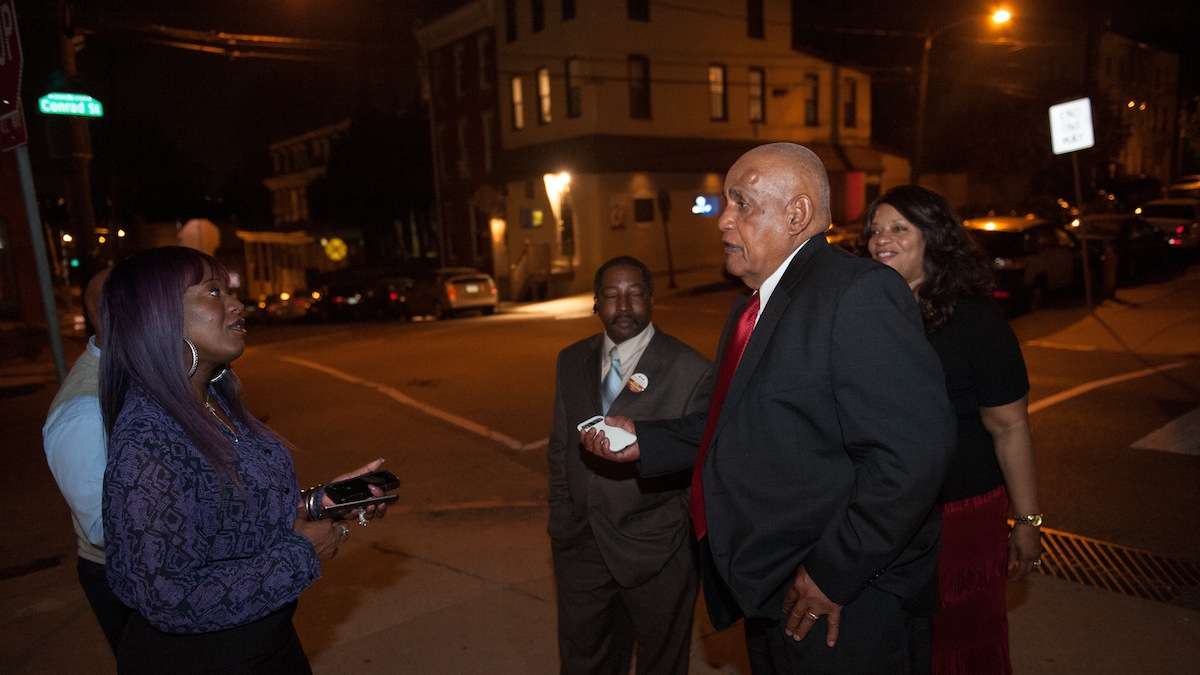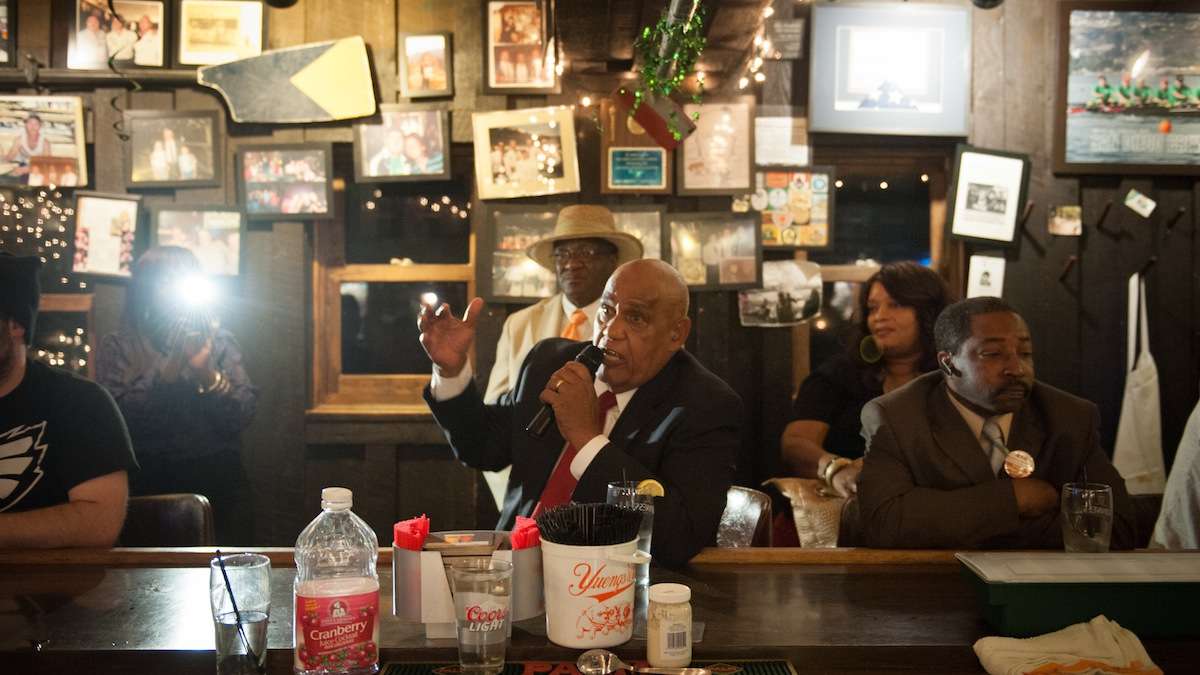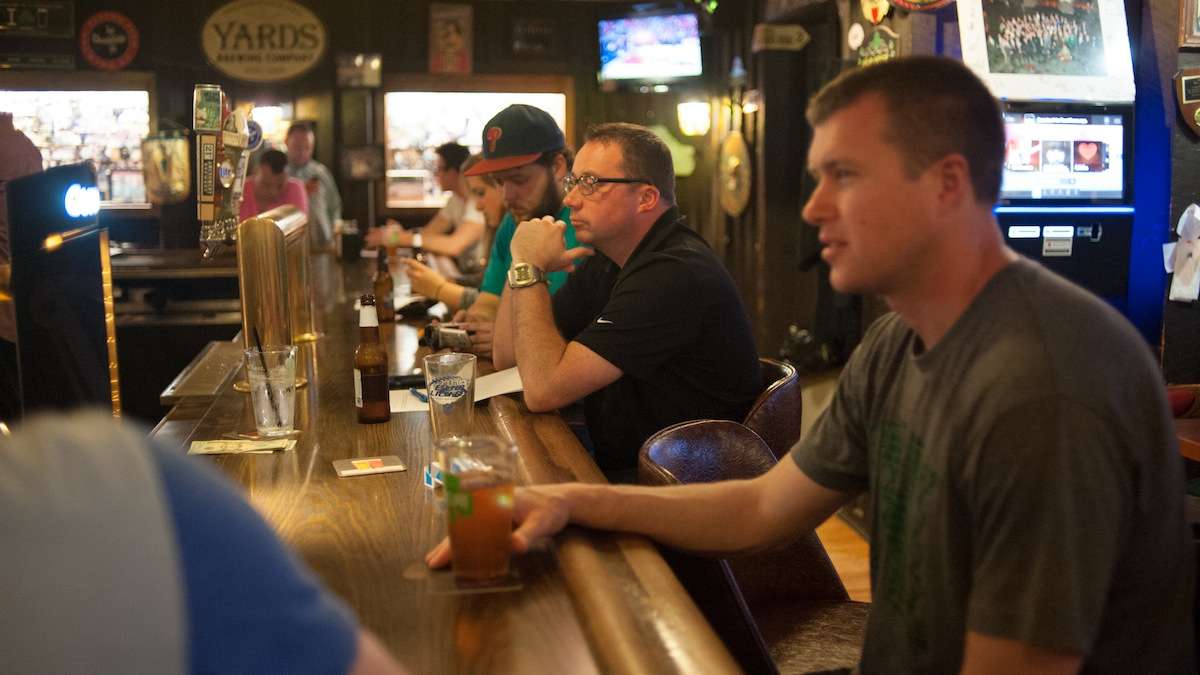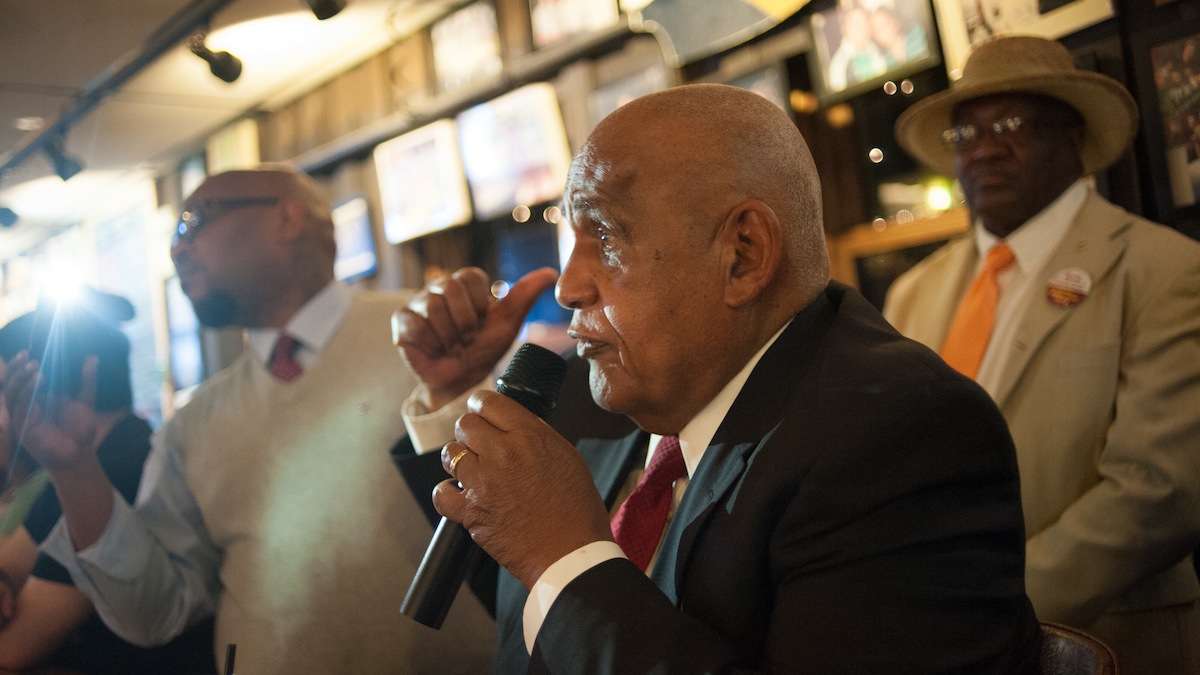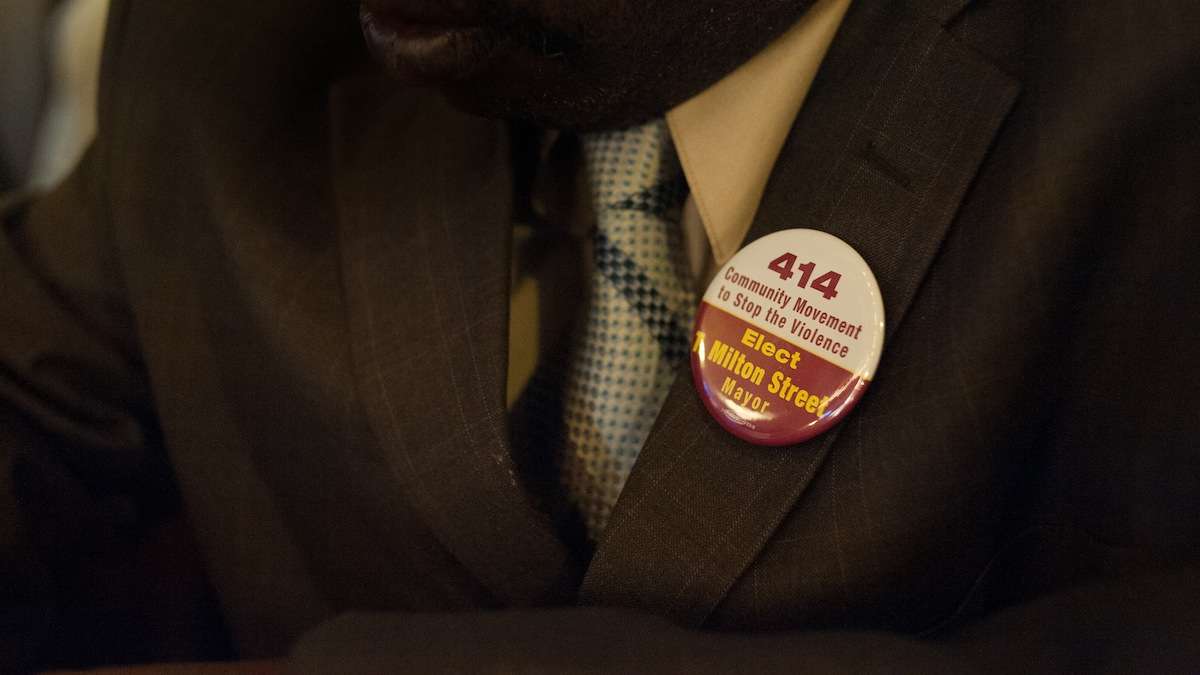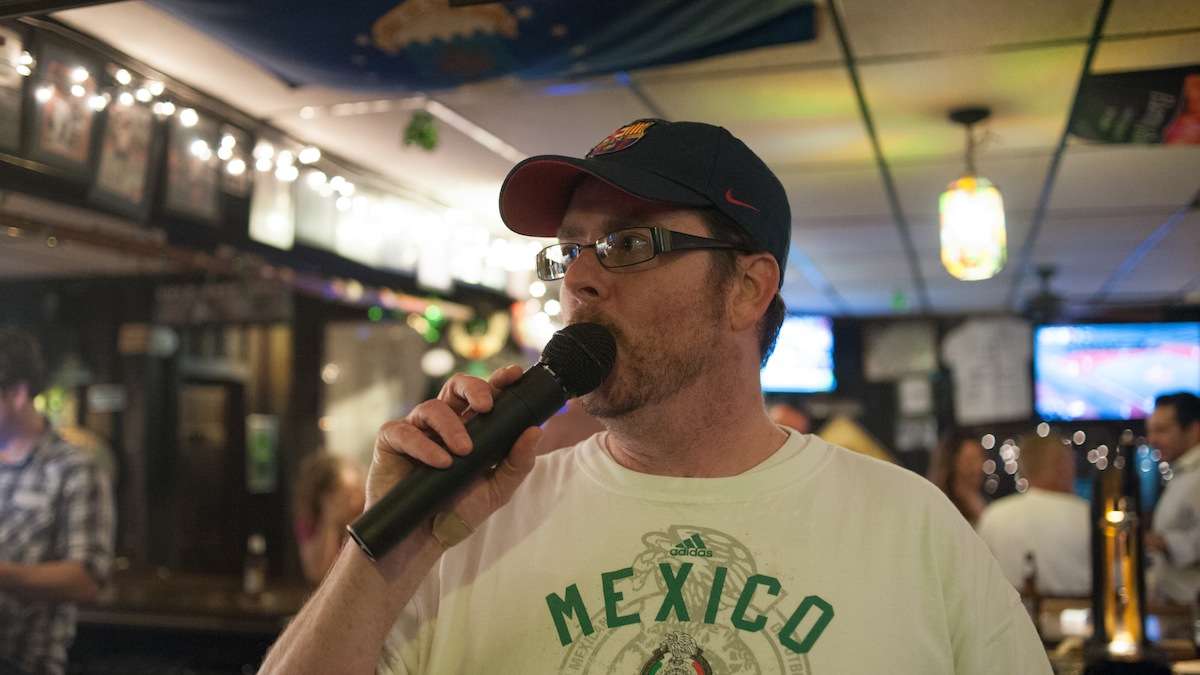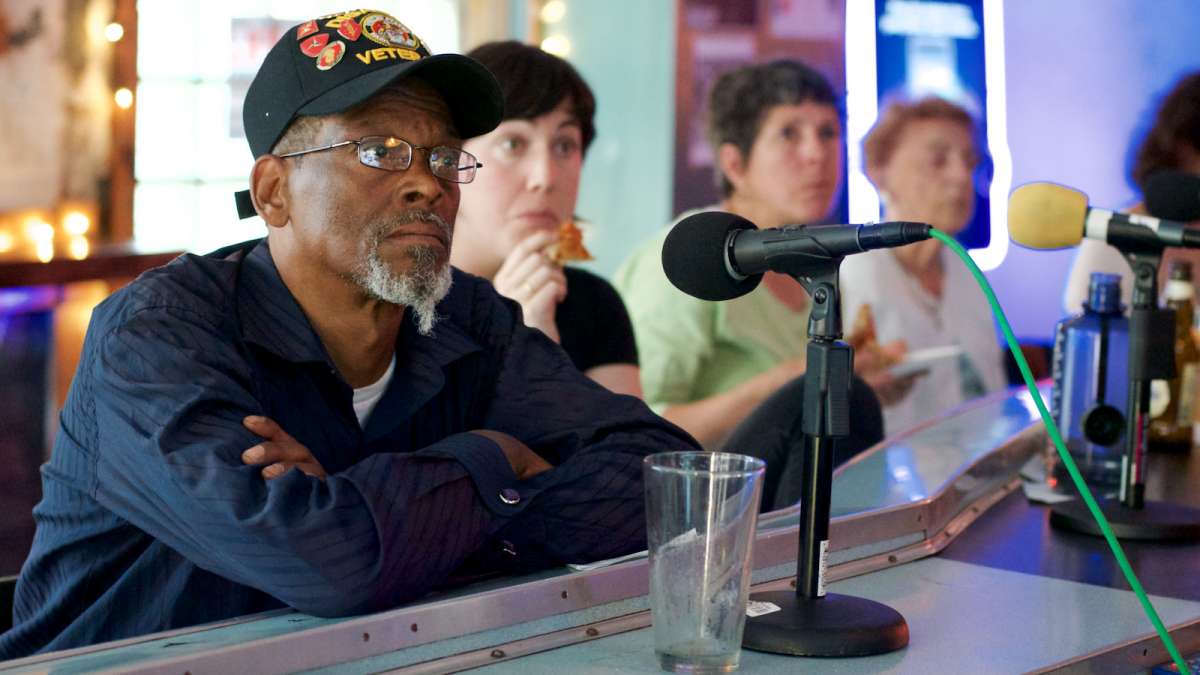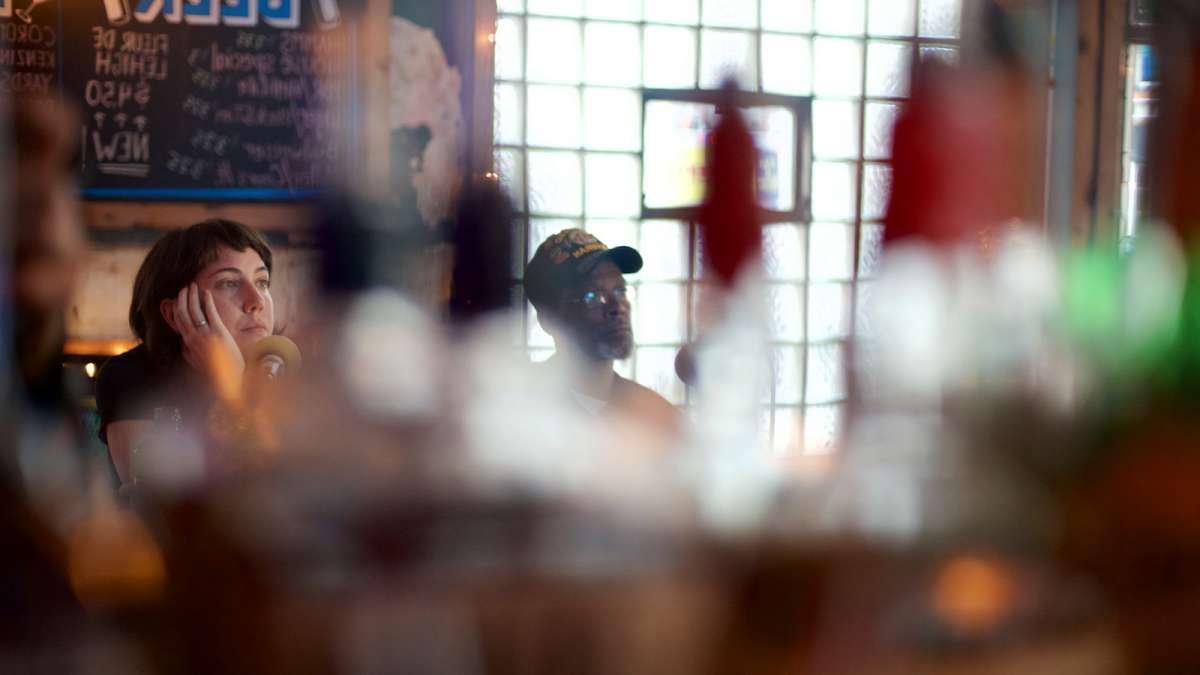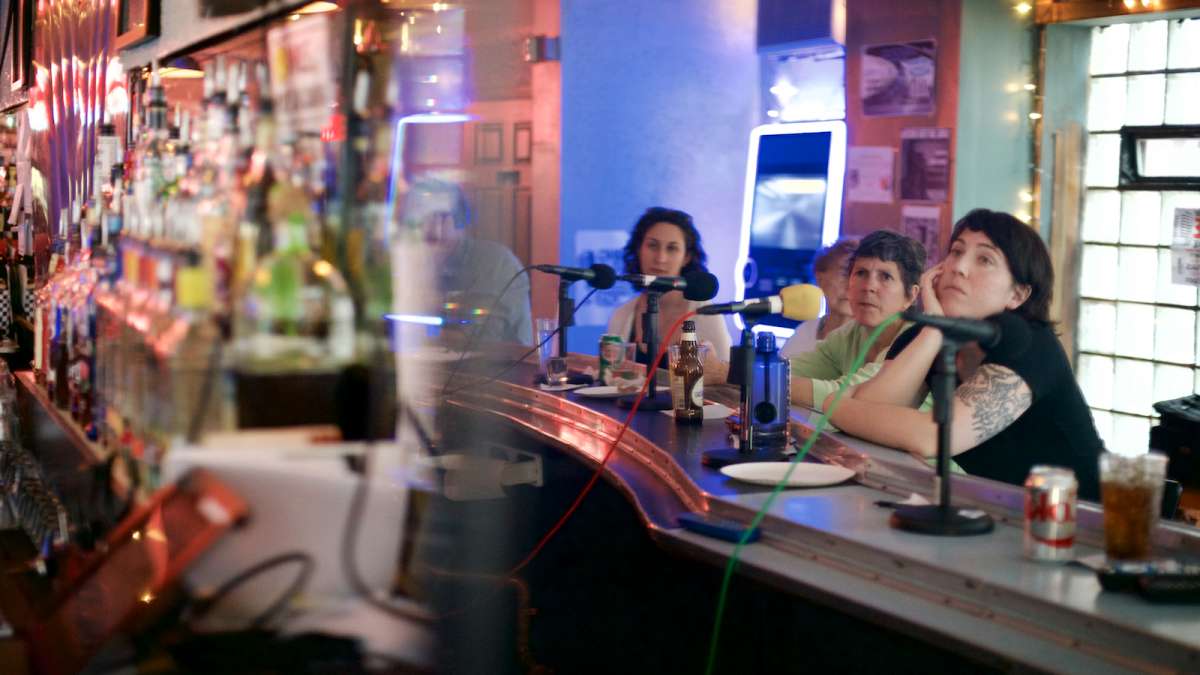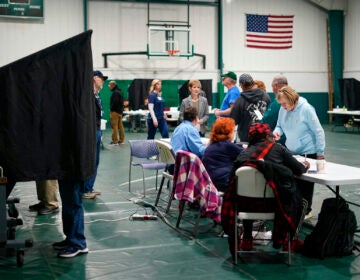Mayoral debate leaves Brewerytown residents unimpressed and unconvinced
ListenPhiladelphia’s six Democratic mayoral candidates have participated in dozens of forums to discuss their ideas and zing their opponents. With less than two weeks left before the primary, the question is: Are their messages getting through to voters?
Third in series of election-year visits to Brewerytown, just one Philadelphia neighborhood in flux. [Part 1, Part 2]
—
Philadelphia’s six Democratic mayoral candidates have participated in dozens of forums to discuss their ideas and zing their opponents. With less than two weeks left before the primary, the question is: Are their messages getting through to voters?
To find out, NewsWorks/WHYY gathered a few residents from the North Philly neighborhood of Brewerytown to watch the final televised mayoral debate at Sarah’s Place, a tiny bar on the corner of 29th and Flora streets.
Being Cinco de Mayo, it was a busier Tuesday night than usual for the friendly bartenders, Steve Ferrell and Chris Waugh, so we cranked up the volume on the flat-screen TV set to channel 6abc.
The debate covered territory the candidates are accustomed to by now — school funding, bringing businesses to Philadelphia, and the tension between police and communities.
But the thing that got the crowd in Brewerytown sitting up on their bar stools was … tax abatements.
“Now, my thing is, if you already established and you’ve gotten the tax abatement once … you shouldn’t get another tax abatement,” said Warren Hill, who has lived in Brewerytown — or North Philly, as longtime residents call it — for most of his 53 years.
Sitting next to him was Nicole McDonald, who has lived in the neighborhood for a year and a half.
“The tax breaks should come to people like landlords who have a certain percentage of lower income housing in their buildings,” McDonald said.
While tax abatements are not the sexiest topic, the subject hits home here because, like many neighborhoods in Philadelphia, Brewerytown is changing. New stores are opening on the main drag of Girard Avenue and more people are moving into brand-new condos and rehabbed rowhouses. Some call it “revitalization.” Others call it “gentrification.”
The mayoral candidates disagree about what to do with the city’s 10-year tax abatement on new developments. Jim Kenney supports it, but also wants to increase the city’s land value to collect more property tax revenue. Lynne Abraham is proposing a 20-year tax abatement on new construction in the city’s neighborhoods.
Julie Dietrich, who has lived in Brewerytown for six years, was surprised by state Sen. Tony Williams’ answer that he also wants to adjust the tax abatement program to bring more development to neighborhoods outside Center City. Dietrich said she thought only high-profile projects like the new Comcast tower get those benefits.
“They’re gonna build that in Brewerytown? I mean, they’re the ones that are getting the tax abatements, right,” she asked.
Hill pointed out that that tax abatements are a major reason for much of the new development to Brewerytown.
“All of the new houses, new buildings — they got tax abatements. All of them,” he said.
“And yet, they’re talking about how we don’t have enough money to pay for the school district,” Dietrich replied.
Polls show most voters are split between Abraham, Williams and Kenney who has recently taken the lead. About 20 percent of voters remain undecided, and, after last night’s debate, it was clear these residents fall into that camp.
Overall, they were not impressed by the candidates’ performance.
Dietrich has seen some of them in TV ads, but this was her first time watching them speak in depth about their views. She was disappointed by a dearth of fresh ideas.
“They’re all sitting up there saying, ‘We’re going to do this, we’re going to do that.’ Didn’t [Mayor] Nutter say that before him, and Street before him, and Rendell before him? And yet, these are entrenched problems,” she said.
All three Brewerytown residents say they are torn between one of the top three candidates who have had decades in public service and Doug Oliver, the youngest candidate in the race.
“In all of these speaking forums, he really does come out on top even though he doesn’t have any of the experience,” McDonald said.
“That’s where I think we go wrong at as voters because in our constitution … you don’t have to have experience in politics,” Hill interjected.
So how do they choose? McDonald and Dietrich said they have more research to do.
As for Hill, he said it will come down to which candidate is the most convincing liar.
“That’s all they ever do to get voted in anyway,” he said with a laugh.
The candidates have less than two weeks left to close the sale.
WHYY is your source for fact-based, in-depth journalism and information. As a nonprofit organization, we rely on financial support from readers like you. Please give today.


